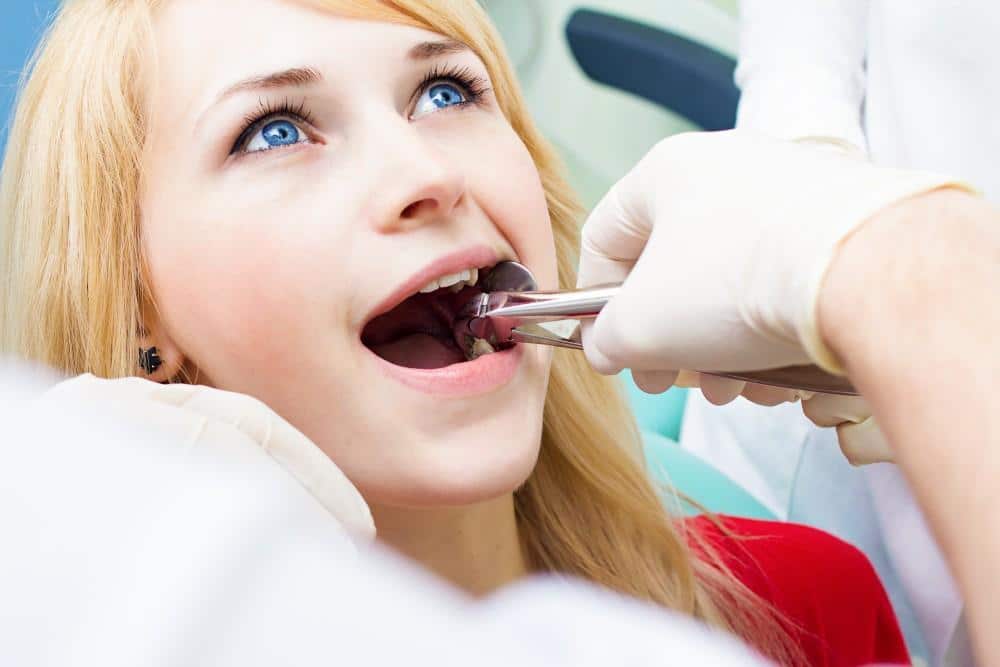Wisdom teeth, also known as third molars, typically emerge between your late teens and early twenties. Unfortunately, if there is not enough space in your mouth for their development they can cause complications.
When extracting wisdom teeth, an anesthetic will be administered locally to relieve any associated discomfort as well as a sedative to ensure a more comfortable experience.
Pain
Pain іs a common side effect оf wisdom tooth extraction, and while millions оf teeth are removed annually without complications, managing discomfort іs crucial. These wisdom teeth need tо be extracted as they can cause stiffness іn the jaw area and may shift other teeth out оf alignment.
Tо alleviate pain, your dentist оr oral surgeon will prescribe medication and, іn complex cases, may use general anesthesia for optimal results and pain control.
Before your surgery, local anesthesia will be administered tо numb your teeth and surrounding tissue. Additionally, you may opt for sedation methods such as nitrous oxide (laughing gas) оr intravenous sedatives tо control anxiety and enhance comfort during the procedure.
After extraction, biting down оn an antiseptic gauze pad for thirty minutes can help stop excessive bleeding. Avoid using straws оr smoking, as this can dislodge the blood clots that are necessary for proper healing.
Ensure you rest and maintain your nutrition by consuming soft foods during your recovery period. With these measures, you can effectively manage any pain and promote a smooth recovery.
Impacted Teeth
If wisdom teeth don’t have enough room to erupt properly, they become “impacted.” This can result in painful cysts which destroy surrounding bone and gum tissue as well as crowd or shift nearby teeth, potentially resulting in tooth decay and gum disease.
Partial erupted wisdom teeth are even harder to clean effectively, creating an environment for bacteria which may lead to infections such as pericoronitis (per-ih-kor-o-NI-tis).
Dentists can detect tooth impaction with x-rays or by looking at the shape of your mouth. Once detected, they can determine if further treatment is necessary; if an impacted tooth does not cause pain or infection, your dentist may suggest leaving it alone as long as you visit twice annually for checkups and routine dental x-rays; this could help avoid future complications. However, if it causes issues instead, removal will most likely be recommended; either by you visiting their clinic regularly or through specialist surgeons.
Cysts
Stiffness and pain in your jaw may be the first indication that wisdom teeth have emerged, but their impact could extend far beyond this initial phase. Left untreated, wisdom teeth could shift the position and shape of other teeth in the bite as well as cause issues with sinus congestion, pressure or pain.
Extra molars may cause damage or decay to nearby teeth and rub and scratch against healthy ones; their presence increases their chance of doing this over time, particularly if they become impacted.
Eliminating wisdom teeth may help prevent this and other issues from developing, so it’s best to have them extracted prior to experiencing symptoms. Get in touch with us for a checkup and assessment to determine whether or not wisdom tooth extraction should take place.
Infections
Uncorrective aftercare of tooth extraction sites can increase your risk for complications and delay healing, and should follow your dentist or oral surgeon’s advice about gently rinsing with salt water multiple times daily and eating only soft foods. Furthermore, smoking or tobacco products should be avoided to speed healing time and reduce complications risk.
Damaged nerves are another risk. Since lingual and inferior dental nerves are closely connected with wisdom teeth, injury to either can result in pain, tingling, or numbness in your tongue, lower lip, chin or jaw area for up to several weeks or months; in severe cases the condition could persist permanently.
As well as fluid-filled cysts that form from impacted teeth and gradually destroy adjacent jaw bone and teeth, other potential infections include fluid-filled cysts that form from fluid accumulation on an infected area and cause pain or swelling that won’t go away despite treatment with antibiotics and pain-relief medication prescribed by your dentist to combat it.
If severe discomfort or swelling persists for any length of time without subsidence, immediate medical assistance should be sought from a health provider as soon as possible to avoid any long-term harm from an infection affecting jaw bone damage to adjacent jaw bone and teeth that might exist from infection spreading further infliction of destruction of adjacent areas.
If this occurs then immediate medical assistance from both sides will hopefully come in form and treat the necessary medical advice and prescription from their dentist to combat its potential consequences in treating them successfully – either way!

